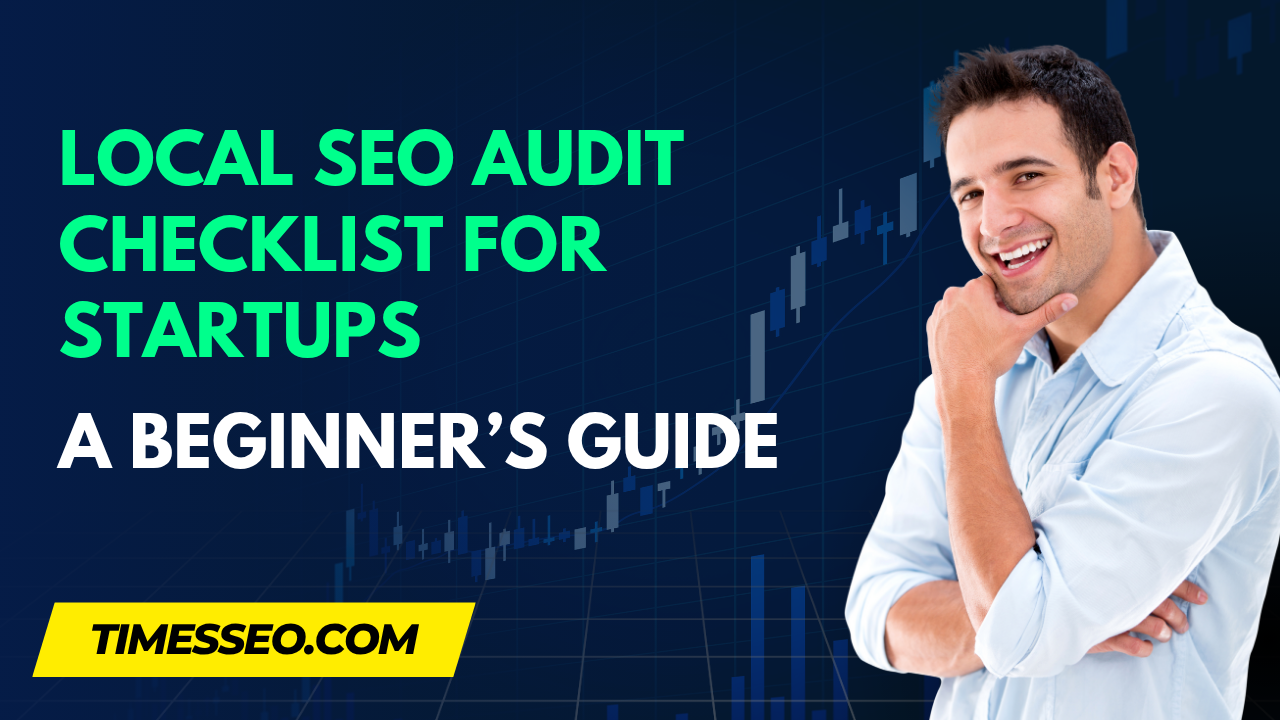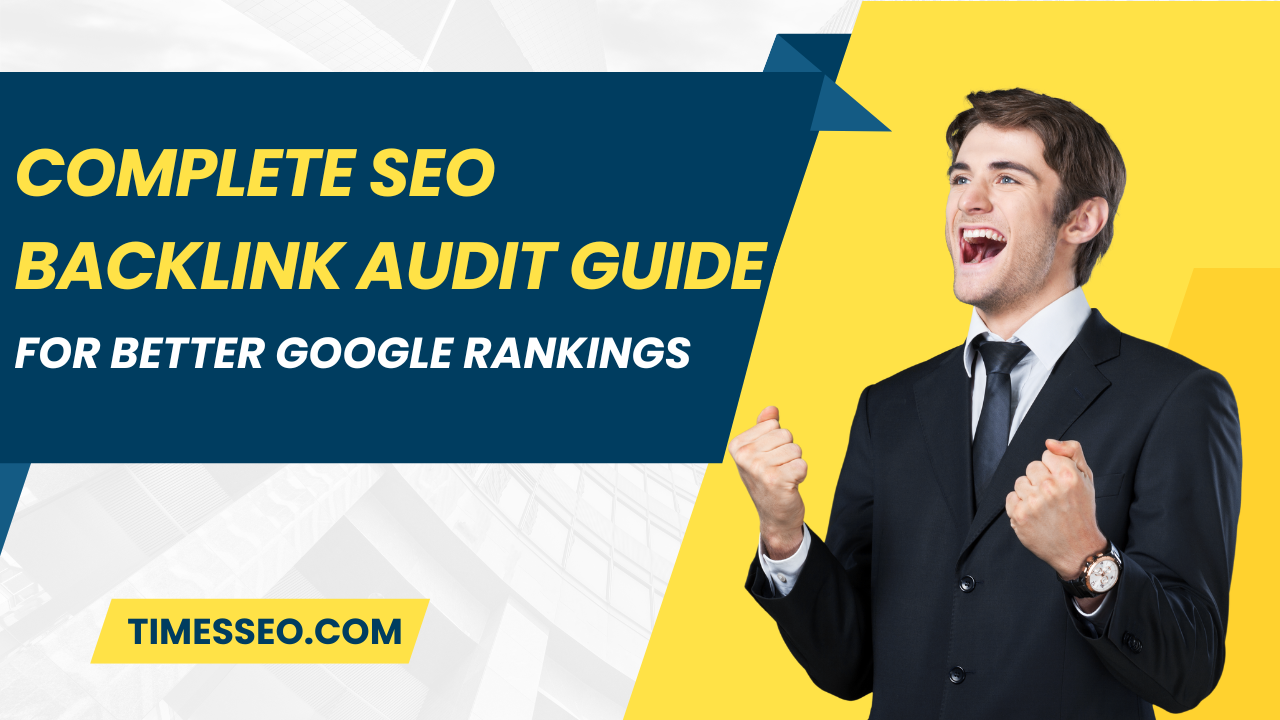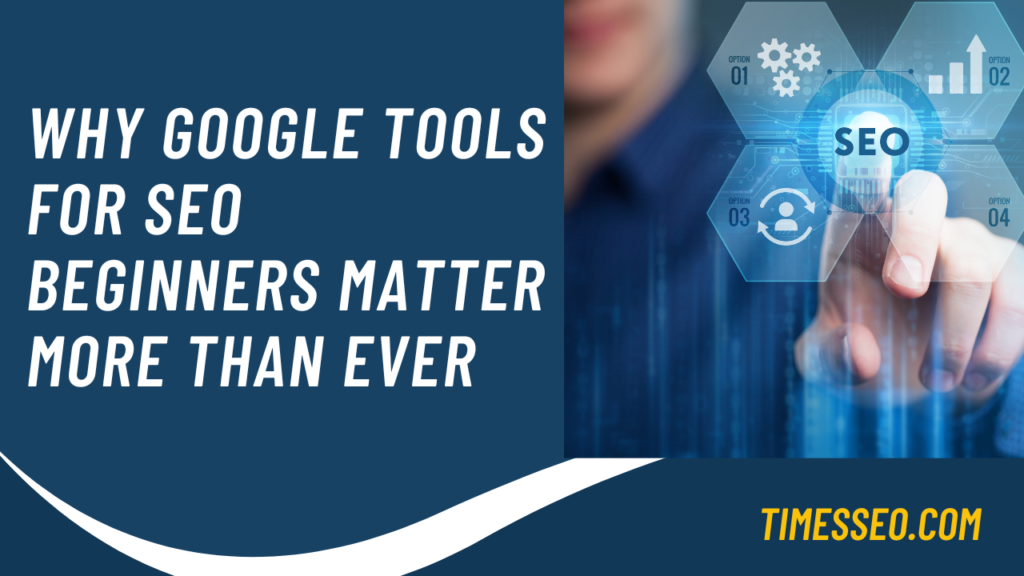
Why Google Tools for SEO Beginners Matter More Than Ever
Discover why Google tools for SEO beginners are more important than ever in today’s digital world. This guide explores essential free tools like Google Search Console, Analytics, Keyword Planner, and more—helping beginners improve rankings, boost traffic, and build a strong SEO foundation with ease.
Table of Contents
Introduction
SEO is no longer optional—it’s survival. With millions of websites competing for visibility, the question is simple: how do you make your site stand out? The answer lies in Google. As the world’s leading search engine, Google not only decides rankings but also provides free, powerful tools to help beginners. And in today’s digital race, these tools matter more than ever.
Understanding Google’s Role in SEO
Let’s be real—Google runs the internet when it comes to search. Over 90% of global searches are conducted on Google. Their algorithms decide whether your site gets traffic or stays invisible. That’s why understanding and using Google’s SEO tools is like playing by the rulebook of the referee itself.
Overview of Essential Google Tools for SEO Beginners
Here’s the lineup every beginner should know:
- Google Search Console – monitor site health and performance
- Google Analytics – understand your audience
- Google Keyword Planner – research keywords
- Google Trends – track keyword popularity
- Google PageSpeed Insights – measure speed and performance
- Google Mobile-Friendly Test – ensure mobile optimization
- Google Business Profile – boost local SEO visibility
Why Beginners Should Start With Google Tools
You don’t need complex equipment or pricey software if you’re just starting off. Google gives you a complete SEO toolkit—free, reliable, and directly connected to their search engine. Why guess when you can use data straight from the source?
Google Search Console: Your SEO Command Center
Think of this as your SEO cockpit. You can:
- Track impressions, clicks, and positions
- Submit sitemaps to help Google crawl your site
- Fix errors like 404s or indexing issues
Without Search Console, you’re flying blind.
Google Analytics: Understanding User Behavior
Traffic isn’t just about numbers—it’s about behavior. Google Analytics helps you:
- See where visitors come from
- Track what pages they engage with
- Monitor bounce rates and conversions
This tells you what’s working—and what’s not.
Google Keyword Planner: Keyword Research Made Easy
Keywords are the heart of SEO. With Keyword Planner, you can:
- Find new keyword opportunities
- Understand search volume and competition
- Plan content or ads around real data
It’s like having a keyword treasure map.
Google Trends: Spotting Trends Before Competitors
Want to be ahead of the curve? Google Trends shows:
- Seasonal keyword spikes (think Black Friday or Christmas)
- Compare multiple keywords
- Plan timely blog posts or campaigns
Perfect for bloggers and marketers who don’t want to miss trends.
Google PageSpeed Insights: Why Speed Equals Rankings
Did you know that conversions might drop by 7% with a 1-second delay? PageSpeed Insights measures Core Web Vitals and shows you what’s slowing your site. Faster speed = better rankings and happier users.
Mobile-Friendly Test: Optimizing for Mobile SEO
Since Google switched to mobile-first indexing, your site’s mobile version matters more than desktop. With this tool, you can quickly check if your site is mobile-ready and fix usability issues.
Google Business Profile: Local SEO Superpower
This is invaluable if you manage a local firm. An optimized profile:
- Puts you on Google Maps
- Shows reviews (which boost trust)
- Increases calls, visits, and conversions
Local SEO without a business profile? Impossible.
How to Use Google Tools Together Efficiently
Each tool is powerful alone, but together they’re unstoppable. For example:
- Use Keyword Planner to find terms
- Write optimized content
- Track clicks in Search Console
- Measure traffic in Analytics
- Improve site speed with PageSpeed Insights
That’s a complete SEO cycle powered by Google.
Common Mistakes SEO Beginners Make With Google Tools
Some mistakes to avoid:
- Ignoring data from Search Console
- Overlooking mobile performance
- Misinterpreting bounce rate in Analytics
- Not updating business profiles
Using tools without action = wasted opportunity.
Advanced Tips for Maximizing Google Tools
Once you’re comfortable, you can:
- Set up custom dashboards in Analytics
- Use APIs to automate reporting
- Track eCommerce conversions
This helps you scale SEO beyond the basics.
Why Google Tools Will Matter Even More in the Future
With AI, voice search, and stricter privacy rules, SEO is evolving. But one thing’s certain: Google toolshttps://timesseo.com/multiple-seo-plugins-for-wordpress/
will remain the foundation. They’ll keep updating features to guide site owners in this ever-changing digital landscape.
Conclusion
For SEO beginners, Google tools aren’t optional—they’re essential. They give you free, accurate, and actionable data to improve visibility, rank higher, and grow your online presence. If you want to succeed in SEO, start with Google’s toolkit—it’s like learning to drive with the best instructor by your side.
Frequently Asked Questions
Yes, all the tools mentioned—Search Console, Analytics, Keyword Planner, and more—are completely free.
Not as a beginner. Google tools cover most of what you need. Paid tools are more for advanced SEO strategies.
Begin with Google Search Console. It’s the most important for tracking and fixing SEO basics.
They provide accurate core data, but advanced tools like SEMrush or Ahrefs offer deeper competitor analysis.
Absolutely. Google Business Profile is critical for local SEO success.
Table of Contents
Popular Posts
-
 Affordable Technical SEO Audit for Small Business: A Complete Guide26 Jun 2025 Blog
Affordable Technical SEO Audit for Small Business: A Complete Guide26 Jun 2025 Blog -
 How to Get an Affordable Technical SEO Audit for Small Business27 Jun 2025 Blog
How to Get an Affordable Technical SEO Audit for Small Business27 Jun 2025 Blog -
 The Ultimate Local SEO Audit Checklist for Startups28 Jun 2025 Blog
The Ultimate Local SEO Audit Checklist for Startups28 Jun 2025 Blog -
 Local SEO Audit Checklist for Startups: A Beginner’s Guide28 Jun 2025 Blog
Local SEO Audit Checklist for Startups: A Beginner’s Guide28 Jun 2025 Blog -
 Top On-Page SEO Audit Steps for Service Websites Every Business Should Know29 Jun 2025 Blog
Top On-Page SEO Audit Steps for Service Websites Every Business Should Know29 Jun 2025 Blog -
 Technical SEO for WordPress: The Ultimate Beginner’s Guide01 Jul 2025 Blog
Technical SEO for WordPress: The Ultimate Beginner’s Guide01 Jul 2025 Blog -
 The Impact of On-Page SEO Audit Steps for Service Websites on UX01 Jul 2025 Blog
The Impact of On-Page SEO Audit Steps for Service Websites on UX01 Jul 2025 Blog -
 Technical Mobile SEO Audit Tips for Developers02 Jul 2025 Blog
Technical Mobile SEO Audit Tips for Developers02 Jul 2025 Blog -
 Complete SEO Backlink Audit Guide for Better Google Rankings03 Jul 2025 Blog
Complete SEO Backlink Audit Guide for Better Google Rankings03 Jul 2025 Blog -
 Boost Your Rankings with Technical SEO for WordPress01 Jul 2025 Blog
Boost Your Rankings with Technical SEO for WordPress01 Jul 2025 Blog






